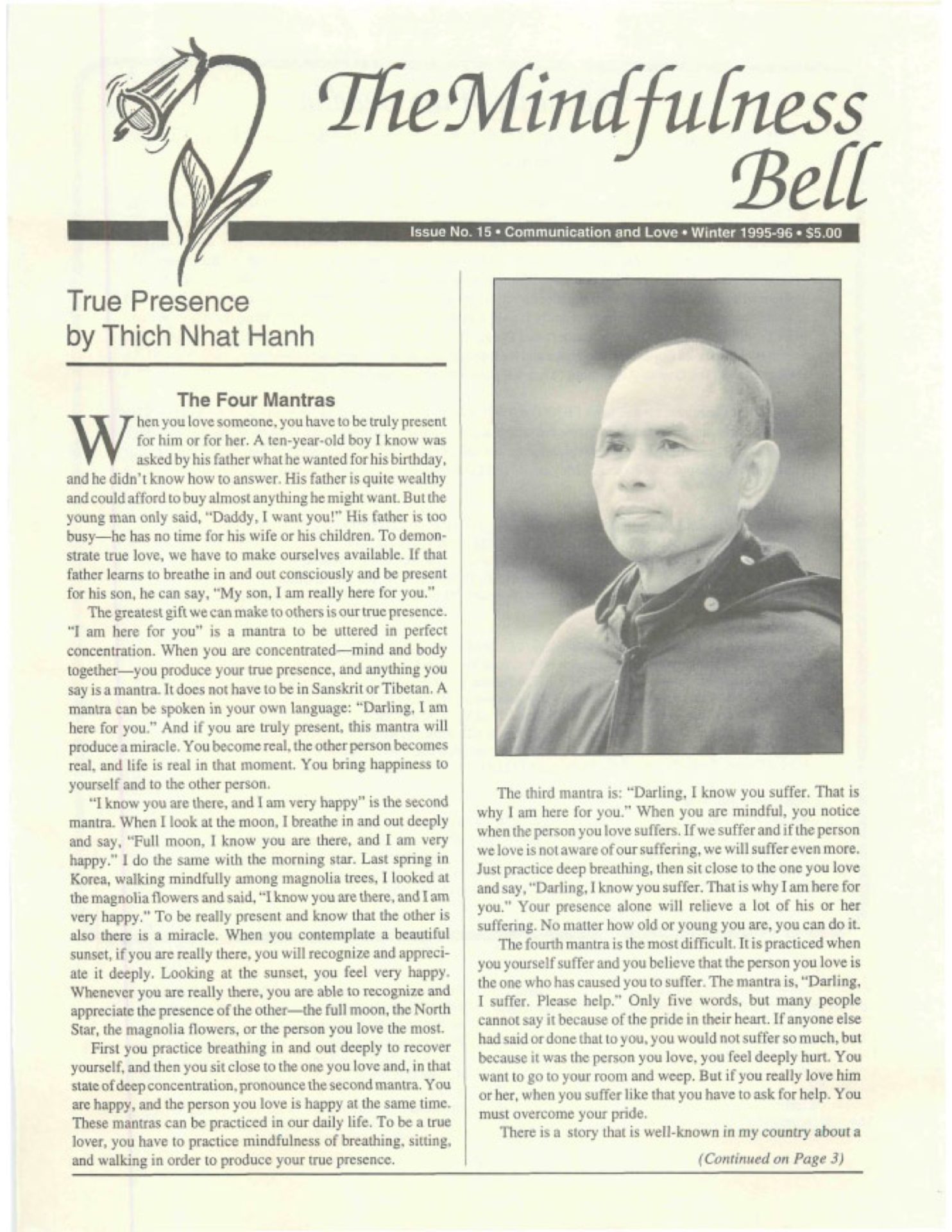By Ed Espe Brown
Enjoyment is pivotal in our lives. Without enjoyment, it is hard to concentrate or be mindful. People often say, “I can’t really enjoy my food, because if I did I’d be a blimp.” Actually, it’s the other way around. If you enjoy your food, you will be careful about what you eat, and it will give you great satisfaction and good health. Eating an apple is an intimate activity. You become one with the apple,
By Ed Espe Brown
Enjoyment is pivotal in our lives. Without enjoyment, it is hard to concentrate or be mindful. People often say, "I can't really enjoy my food, because if I did I'd be a blimp." Actually, it's the other way around. If you enjoy your food, you will be careful about what you eat, and it will give you great satisfaction and good health. Eating an apple is an intimate activity. You become one with the apple, and the apple becomes one with you.
A Ghanian friend once told me, "I don't understand how Americans can eat so much anonymous produce. Where I grew up, we knew where everything came from, who owned the farm, what side of the hill it grew on, what the light was there, whether there were trees, who grew it, and who harvested it." So I want to tell you about the apples, so that they won't be just anonymous.
Some are Golden Delicious and some are Jonagolds, which is a cross between Golden Delicious and Jonathon. Jonagolds are large apples, with yellow skin and red stripes. Golden Delicious are golden, but more plain-colored. Golden Delicious apples are from a farm in Philo, at the headwaters of the Navarro River the ocean, which means there are sea breezes, salt air, cool evenings, and hot days. The farm is operated by Tim Bates and his family, and they themselves helped harvest the apples. Their orchards are very old, the first Golden Delicious to be planted in California. Some are almost 60 years old. The roots making these apples are very deep.
The Jonagolds are from a farm called Oz, which is near the ocean, off the Garcia River, one of the few rivers in California that still has salmon. A few days ago our friends there celebrated their daughter's birthday by inviting her and her friends to pick these apples for us.
Apple trees, miraculously enough, can make apples, which is not something that any of us can do. A famous photographer once said that the best photographer is only as good as the cheapest camera. In this case, the best cook is only as good as the apple. None of us have the capacity to make an apple, so we can only taste in awe how apples know how to make apples—how to turn earth, sun, light, sky, air, and water into apples. Thay has said that the leaves of 30 apples are needed to make one apple. We are like that too, making each other into apples.
Apples are sincere—not pretentious, chic, or stylish. The apples are not in pretty boxes lined up across supermarket shelves, saying, "Buy me, buy me. I'm quick and easy." Apples bring you what you bring them. If you let the apple enter your heart, you will taste it and know its virtue. Knowing its virtue, you will taste and know your own virtue, your own good-heartedness.
Apples are part of the rose family, and if we are attentive, we can actually taste the rose in them. To eat an apple intimately, we give it our full attention. To become intimate with anything or anyone takes time and attention. To receive the gift of the apple, we have to give it our full awareness. I would like to share one of Rilke's sonnets:
Round apple, smooth banana, melon, gooseberry, peach. How all this affluence speaks, death and life in the mouth. I sense, observe it in a child's transparent features while she tastes. This comes from far away. What miracle is happening in your mouth while you eat. Instead of words, discoveries flow out, astonished to be free. Dare to say what apple truly is, this sweetness that feels thick, dark, dense at first, then exquisitely lifted in your taste, grows clarified, awake, luminous, double meaninged, sunny, earthy, real. Oh knowledge, pleasure, joy inexhaustible.
Bon appetit.

Ed Brown is a Zen priest, photographer, and the author of The Tassajara Bread Book, The Tassajara Recipe Book, and the forthcoming Potato Fiascoes and Radish Teachings (Riverhead Books). This apple meditation was offered at Spirit Rock Meditation Center in northern California during the October Day of Mindfulness. This version of the by Rilke is based on a translation by Stephen Mitchell.

